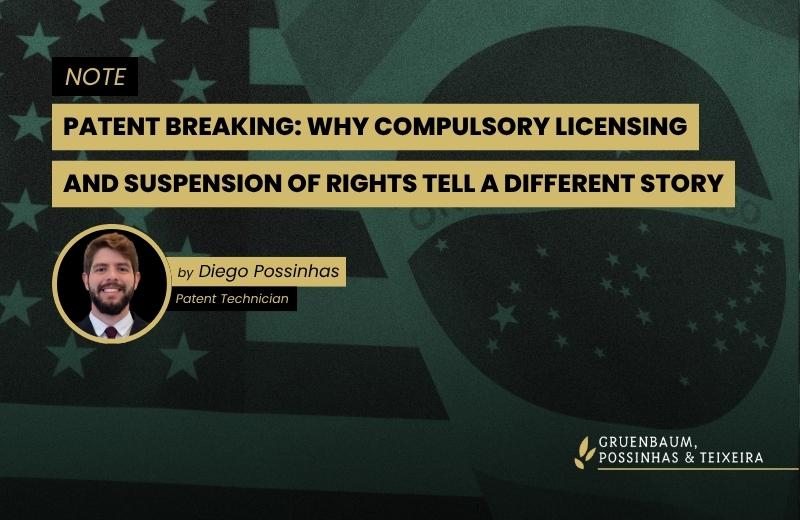Patent Breaking: Why Compulsory Licensing and Suspension of Rights Tell a Different Story

With rising trade tensions between Brazil and the United States — sparked by current President Donald Trump’s threat to impose a 50% tariff on Brazilian exports starting August 1st — speculation has grown around the potential retaliatory measures the Brazilian government might adopt. In this context, intellectual property has emerged as one of the most discussed areas, reviving the popular term “patent breaking” in public discourse.
Among the various statements in the media, one that stands out is a post by the Brazilian Congresswoman Erika Hilton on X, dated July 15, in which she inaccurately claims that, under the Reciprocity Law, Brazil “can break patents” of U.S. pharmaceutical companies, citing as an example what could happen with the drug Mounjaro. But why is this claim — like many others in the public debate — legally imprecise?
The Brazilian Industrial Property Law (IPL – Law No. 9,279/96) does not mention, and has never mentioned, any mechanism resembling a “patent break”. In fact, this popular expression inaccurately refers to the concept of compulsory licensing. According to Article 71 of the IPL, such a license may be granted in cases of national emergency or public interest, on a temporary basis and while preserving the patent holder’s underlying rights.
This means that even if the patent holder is required to license the patent to third parties for commercial use, the measure is temporary, and the holder must still receive royalties for the licensed period. In practice, it is effectively a “remunerated suspension”, not a definitive “break”.
So, what about the Reciprocity Law, recently regulated by decree? It indeed authorizes the Executive Branch to suspend obligations related to intellectual property rights, now allowing such suspension to occur as a response to commercial aggression — unlike compulsory licensing, which is meant for emergencies or matters of internal public interest. Still, the Reciprocity Law does not provide for a “patent break”, and the language regarding this suspension is vague, which may lead to misinterpretations about its scope and application.
Therefore, it is incorrect to claim that “patent break” is a mechanism recognized by Brazilian legislation. Furthermore, applying suspensions of IP rights as a form of retaliation could be a shot in the foot. Brazil is a signatory to international agreements such as the WTO’s TRIPS, and a unilateral trade retaliation of this kind would likely lack legal standing. Such a move could trigger significant legal uncertainty, deter investment, and undermine technological innovation in the country.
